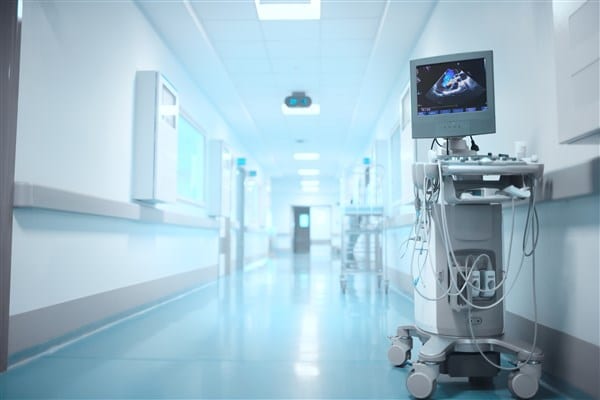Healthcare Bankruptcy and the Medical Ombudsman
Bankruptcy filings by medical facilities are on the rise in the COVID-19 era. Because of issues related to the pandemic, many healthcare facilities — from hospitals to assisted living facilities (ALFs) to outpatient surgery locations and more — may face insolvency issues due to lower revenues as well as litigation-related issues due to COVID. Most will end up being sorted out in a Chapter 11 bankruptcy filing. Some really troubled companies will end up in a Chapter 7 liquidation.
Healthcare companies that are seeking bankruptcy protection have the usual array of issues that conventional businesses face but also have an additional requirement to obey medical privacy issues.
The Medical Ombudsman Role
Healthcare companies have a duty to protect patient records as part of the Health Insurance Portability and Accountability Act (HIPAA), per 45 CFR 164.512(b). Healthcare bankruptcy cases are required by law to have a medical ombudsman as part of the process, per 11 U.S.C. § 333. The role can be filled by professionals from a variety of backgrounds, but Jennis Morse recommends someone with a background similar to Jennis Morse attorney Sacha Ross, who has extensive experience as counsel to healthcare companies as well as experience in bankruptcy law.
The ombudsman’s duty is to mediate between the legal and medical worlds. The person hired for this role should not only have extensive bankruptcy expertise but also be an expert in healthcare laws and regulations, ranging from HIPAA to the Health Information Technology for Economic and Clinical Health Act (HITECH) and more.
All healthcare-related bankruptcies require a medical ombudsman, although upon the proper showing a debtor may be relieved of the requirement. When the medical ombudsman is hired by the attorneys in a bankruptcy suit, the most important aspect is to choose one possessing an equal amount of expertise in both clinical/healthcare and bankruptcy law.
The most common mistake clients make, Ross notes, is hiring an ombudsman who leans too far to one side or another of the two types of expertise needed. Ross also cautions that clients should avoid filing a Chapter 11 bankruptcy unless they have an exit plan to emerge from it.
Hiring the Right Ombudsman
To hire the best medical ombudsman, seek a professional with a robust set of diverse skills, including:
- Ability to read medical charts and an understanding of what should be in them
- Knowledge of healthcare-related regulations
- Experience in bankruptcy and other legal matters as an attorney
- Experience in standards under state and federal law regarding use and disclosure of protected health information
Conversely, the consequences of hiring the wrong ombudsman include:
- Higher fees from the bankruptcy trustee, who is appointed to bankruptcy cases to evaluate and make recommendations about various debtor demands in accordance with the U.S. Bankruptcy Code
- A longer process before resolution, due to the ombudsman being less experienced in either the healthcare or legal realm. This creates the need for more time spent on research, resulting in increased cost and business burden to the debtor
- More administrative expenses due to overlap of efforts by counsel and the ombudsman
- Repercussions for the client’s core business, due to, for instance, getting audited by the Department of Health and Human Services or a state agency while in bankruptcy
- Having an incident under HIPAA that may need reporting or mitigation efforts
Ross points out that she can be hired as a medical ombudsman even if Jennis Morse hasn’t been hired to represent either the creditor or debtor in a particular case. She can help debtors avoid common pitfalls such as the requirements under Rule 6011 for disposing of patient records in a health care business case.
Current and Future Trends
Looking ahead, Ross foresees a lot of governmental scrutiny of ALFs, based on legislation and regulations to help prevent future pandemics. There’s also likely to be an uptick in assisted living facility and healthcare facility bankruptcy filings precipitated by COVID-19.
Ross also predicts there may be federal and state legislation to help hospitals financially — a COVID-19 bailout/remediation plan to help facilities impacted by the pandemic. She doubts that legislation will necessarily cover ALFs and other, smaller medical facilities.
Regardless of how those trends unfold, one thing is for certain: The need for an experienced medical ombudsman will remain strong — especially in the near future, with lots of healthcare bankruptcies expected to be filed.

